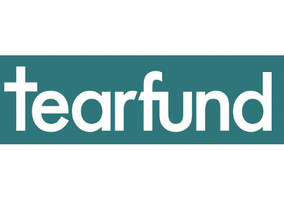Imagine being able to make our problems disappear.
It is an attractive thought – and not as fanciful as it might sound.
Non-disclosure agreements (NDAs) are a clever legal trick designed to make the toughest issues vanish into thin air. And, despite the number of experts who caution against their impact, they are used by charities.
So how much do we know about them, and is their use ever OK?
What is an NDA?
There are two types of NDA.
The first kind is found in employment contracts, is very common, and is not particularly controversial.
It is a clause where a new employee promises, for the duration of the contract, not to steal the charity’s intellectual property or bring the organisation into disrepute. Essentially, you can’t work for a charity and try to damage it at the same time.
The second type of NDA is found in severance packages negotiated when people leave a charity, is far less common, and is much more controversial.
It is colloquially known as a “gagging order”, and that is my focus here. When I refer to NDAs, this is what I mean.
How do NDAs work?
The moment a charity and an employee agree an NDA, the shutters come down. That is the whole point of them.
The member of staff leaves, having agreed not to talk about what went on at their old charity or discuss their work there; the charity agrees a pay-off with the departing employee, commits to its own silence about what went on, and provides a decent reference.
As this would suggest, they tend to be used when things have gone badly wrong, and relationships inside the charity have deteriorated to a point of no return.
Often – but not always – if either side even admits that an NDA exists then they are breaking the terms of that NDA. You can’t even hint to friends that you signed one; the charity generally agrees a set wording to tell colleagues about your departure, which doesn’t mention the deal.
So it is all a bit Fight Club-ish. The first rule of buying someone’s silence is that no one talks about buying someone’s silence.
There are some important caveats, though.
Someone who is bound by an NDA can go to the police about things otherwise protected under the agreement, and are free to go to a regulator like the Charity Commission – although Sophia Moreau, an equality campaigner, warns that one “insidious” effect of NDAs is to put people off making disclosures even then, for fear of repercussions.
How we know about charities using NDAs?
If they are so secretive, how do we know that charities use them? Mainly thanks to that classic combination of brave sources and nosy reporters.
Civil Society News revealed last year that Tearfund, the global development giant, used NDAs. The Guardian found out about NDAs being struck at the Alzheimer’s Society.
The Financial Times published stories about waitresses being told to sign NDAs at the now infamous Presidents Club fundraising dinners. They have been used at St John Ambulance, too, according to Third Sector.
How widely are NDAs used in the sector?
We don’t know. Not knowing is worked into their whole design. Everyone is supposed to walk away from an NDA and never speak about it again.
Nevertheless, it is fair to assume that the NDAs reporters learn about, let alone those which get covered in print, are a fraction of those which are used.
Based on anecdotal evidence, Moreau estimates that they are “no less prevalent [in charities] than in, for the example, the private sector or the public sector”. Indeed, charities may even “use them a bit more”, she suggests, because the stakes are so high if an organisation which has built its brand on doing social good thinks that brand might be harmed.
What is wrong with using NDAs?
One committee of MPs warned last year that NDAs help contribute to a “cover-up culture”. Another said that “unequivocally, in many cases signing a non-disclosure agreement is not benign”.
Some charity campaigners say NDAs have no place in the sector, arguing it is “essential that no one is gagged from raising legitimate concerns and questions that arise in the course of charitable work”.
The main charge is that they are used to protect bullies and abusers inside charities, by convincing victims to shut up and disappear, when they might otherwise make a fuss which could damage the charity’s reputation.
A related worry is that they give senior figures and trustees a short-term solution to toxic cultural problems at a charity, which then go unaddressed until the next scandal – and the next, and the next.
It is a hopeless, dispiriting situation. It shrouds mistreatment in silence, at the very time when so many charities are promising to be more transparent, and is totally unsuited to addressing the institutional and personal damage wrought by bullying and abuse.
Are NDAs ever justifiable?
This is where it gets even more complex. Many charity experts say NDAs still have their place in the sector.
On a technical level, they defend intellectual property. They prevent, say, fundraisers from walking off with donor databases and handing them to a new employer (although the first kind of NDA, included in employment contracts, should cover that).
Bond, the umbrella body for international development charities, suggests a compromise whereby staff should still be able to initiate a conversation about NDAs. It is a fair point. Why shouldn’t an employee, fed up with being mistreated by their charity, seek a deal which softens the financial blow of leaving and protects them from their old colleagues whispering behind their back?
Although even here we have to be careful.
One charity whistleblower, who signed an NDA, told me that the whole process was so skewed by the power imbalance within their organisation that they felt they had “no viable alternative” but to sign.
“I was offered double what I'd get in court through a quick deal, with no uncertainty,” they said.
“Given the state of my mental health, the need to remove my family from a precarious situation, and what now seems like a naive trust that the board chair would hold people accountable, I signed the NDA”.
Plus there is another audience to whom charities must justify themselves: their donors. Can trustees predict how supporters would react if they knew their direct debits were being spent not on doing good but on hushing up disputes with staff?
How are NDAs regulated?
They aren’t, really. Provided NDAs don’t try and block someone from talking to regulators or other authorities, employers are free to use them.
The Charity Commission could “absolutely” have a greater role in addressing the use of gagging orders, though, Moreau argues, starting with something as simple as monitoring how many charities use them.
“If we had a bit more regulation in that area, we would perhaps have more figures to work from,” she says. “Why not look at how many NDAs an organisation has used in a year?”
That would align with how the Commission already considers financial and safeguarding concerns. “Why isn’t the use of an NDA warranting a serious incident report?” she asks.
On that, there seems to be some good news. The regulator is open to talking to whistleblowers about charities with “excessive" use of gagging orders, although that remains to be defined.
A Charity Commission spokeswoman said: “A non-disclosure agreement can be entered into by a charity.
“However, this should never prevent anyone from raising concerns with law enforcement agencies or statutory regulators such as the Charity Commission.
“We encourage anyone with concerns about a charity, whether about its use of NDAs or any other issue, to raise them with us, if appropriate using our dedicated whistleblowing helpline.
“We would take seriously any concerns about the misuse of settlement agreements by a charity, or the excessive use of non-disclosure agreements, which may indicate underlying problems in the governance of a charity.
“Trustees should continue to report incidents or allegations of harm where they may impact on the people involved in a charity, the charity’s assets, property, work or reputation, but the existence of an NDA is not in and of itself a reason to file a report.”
Related news











